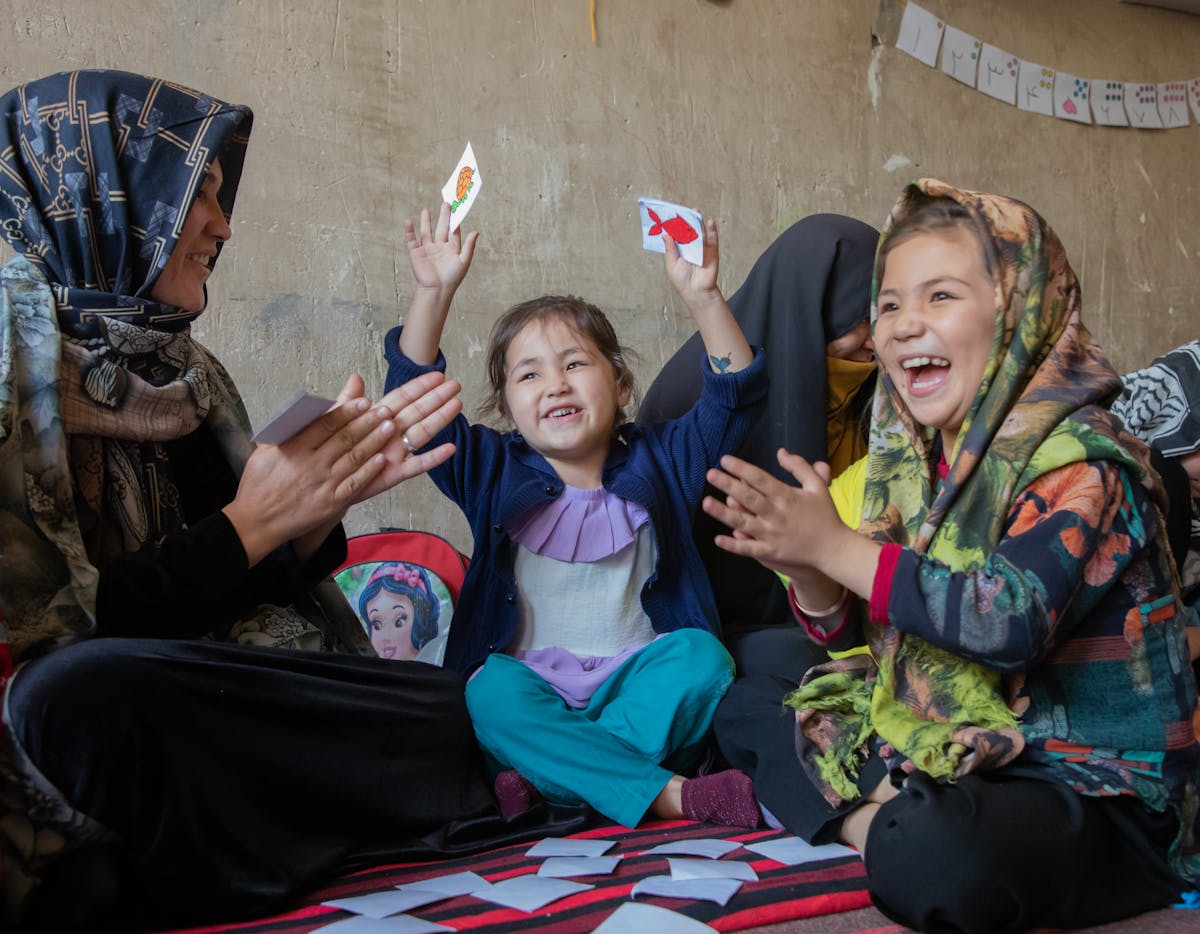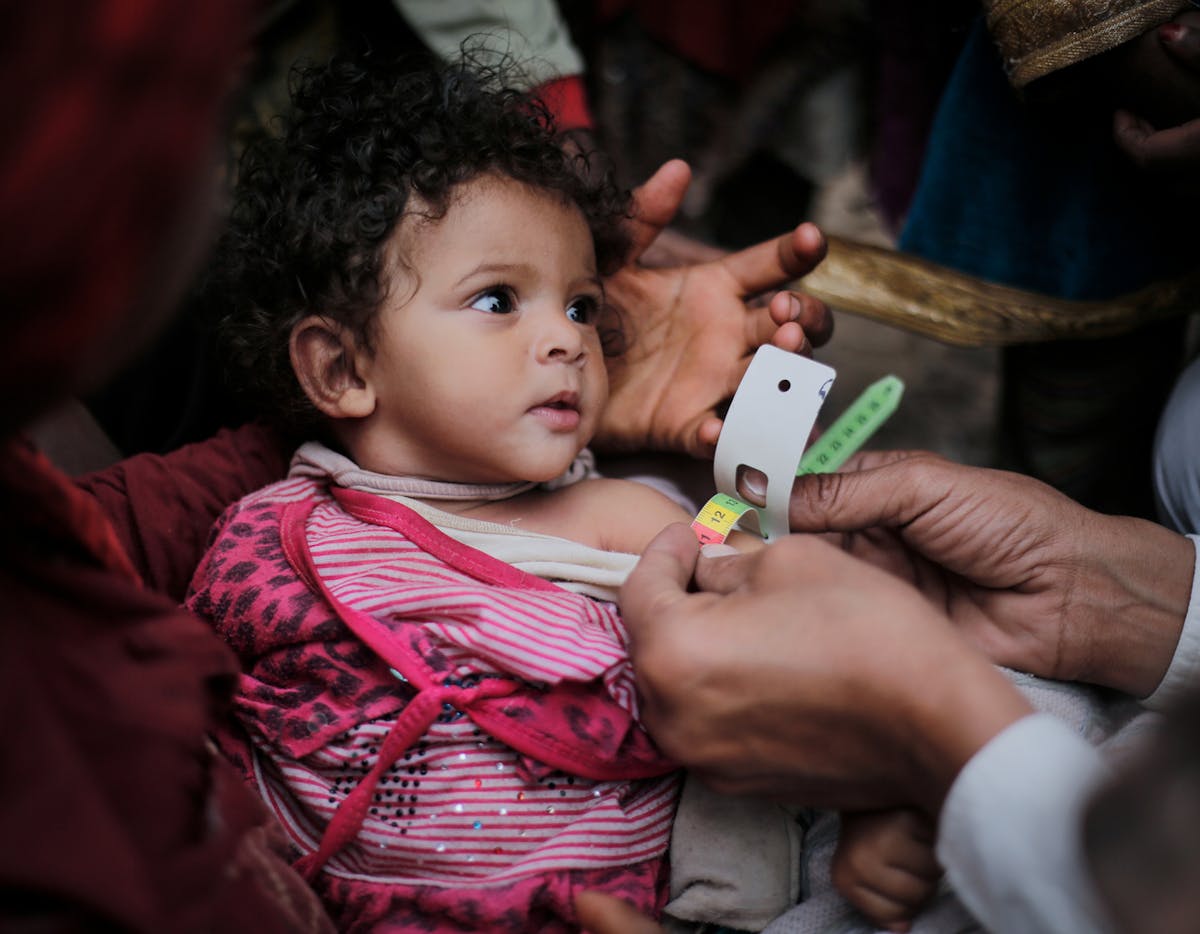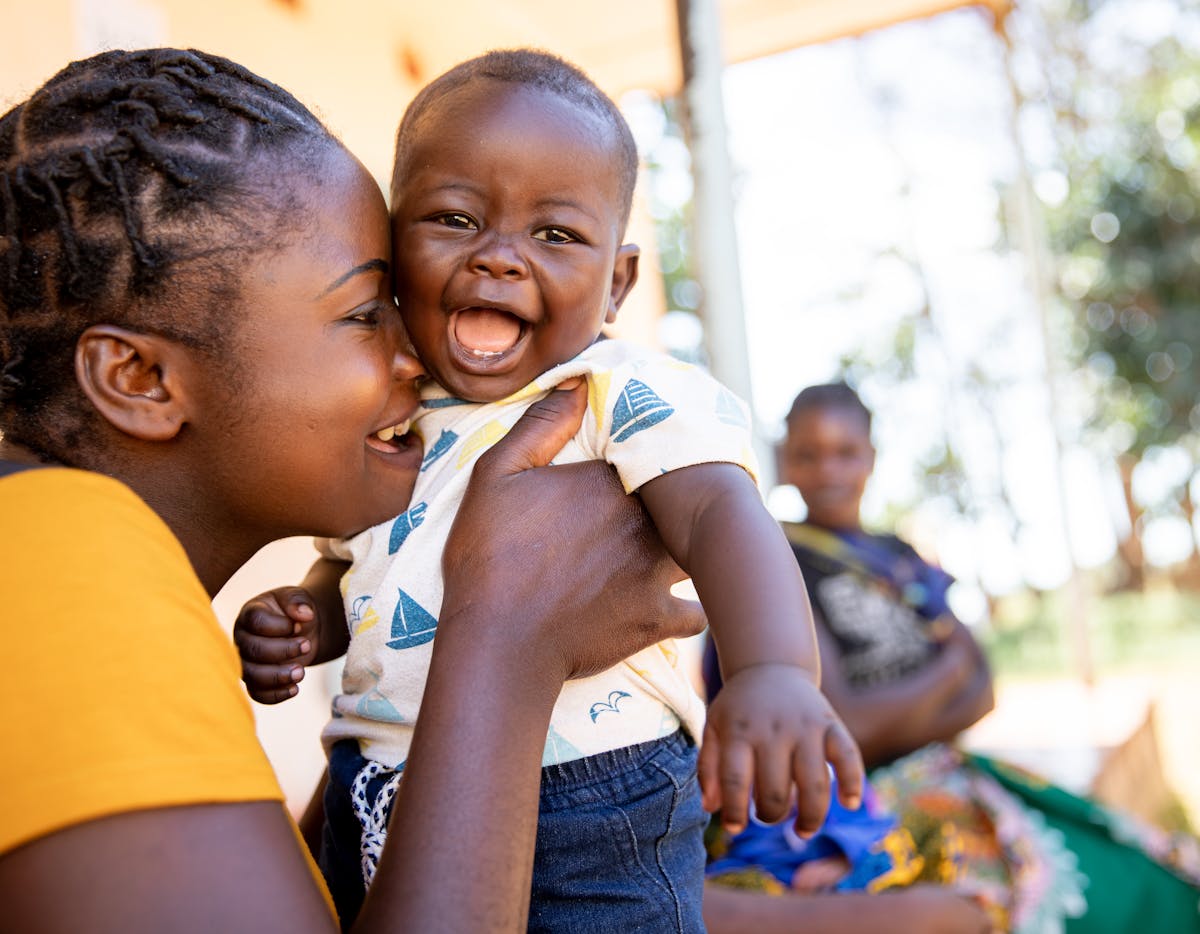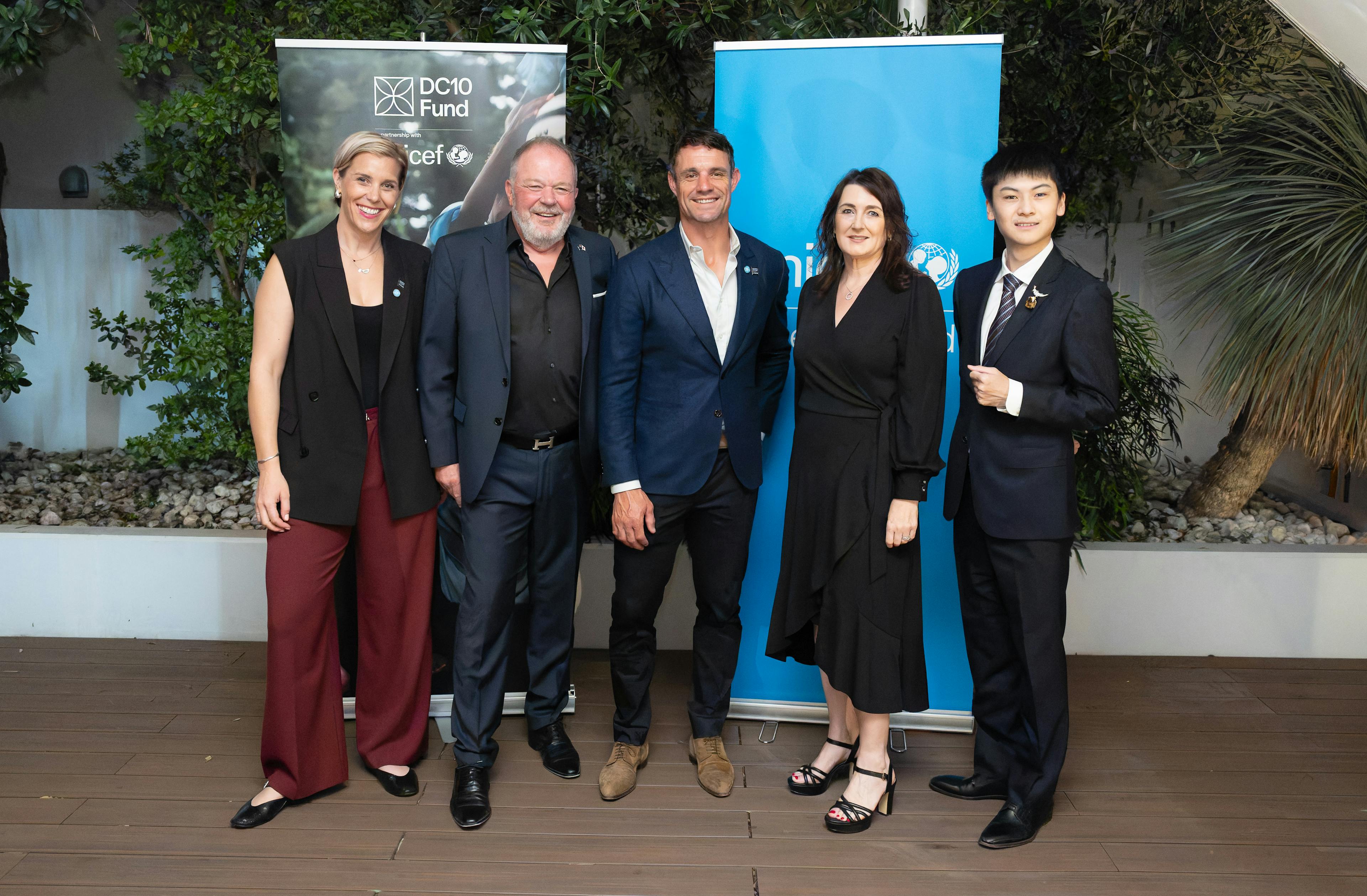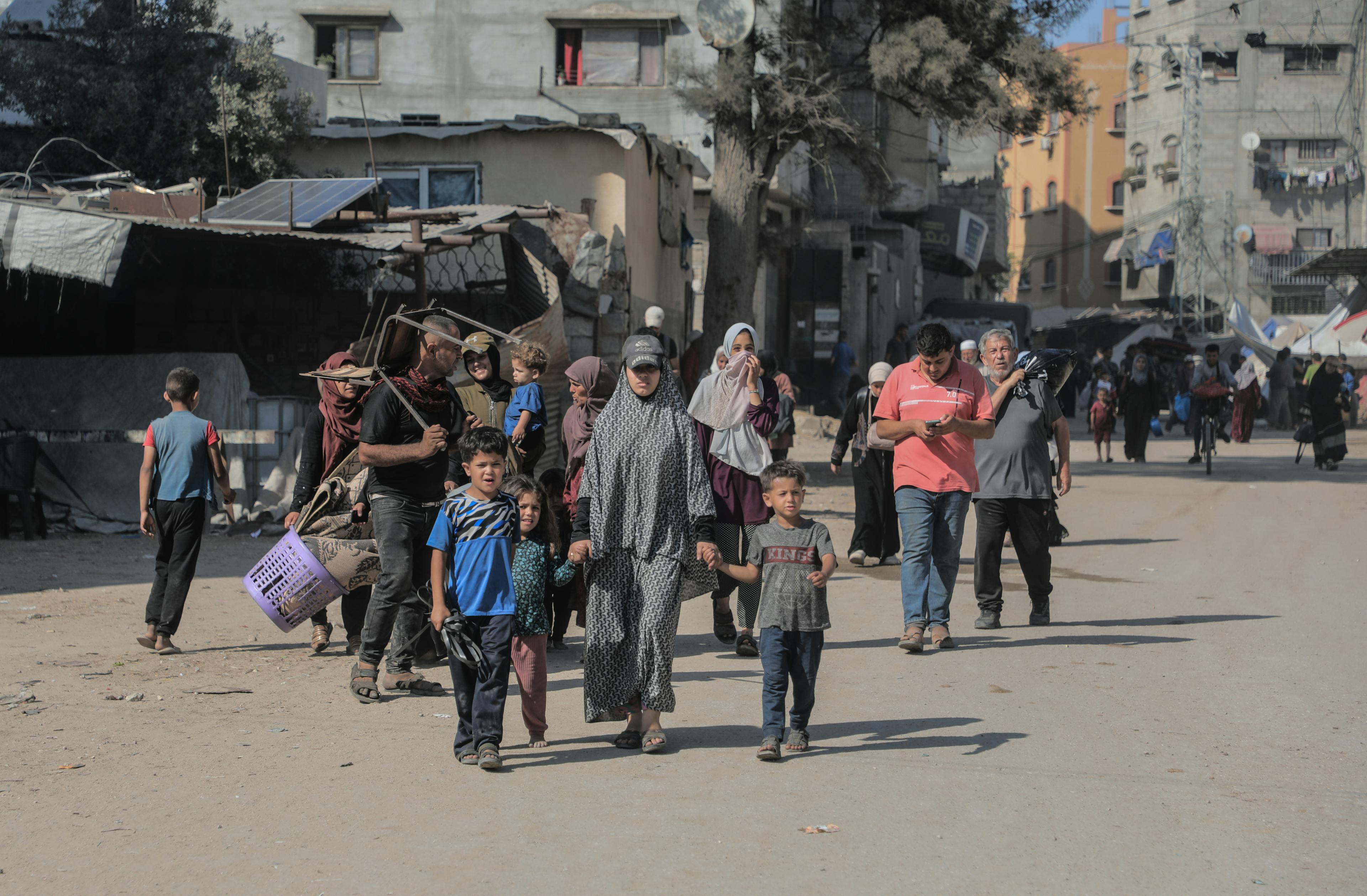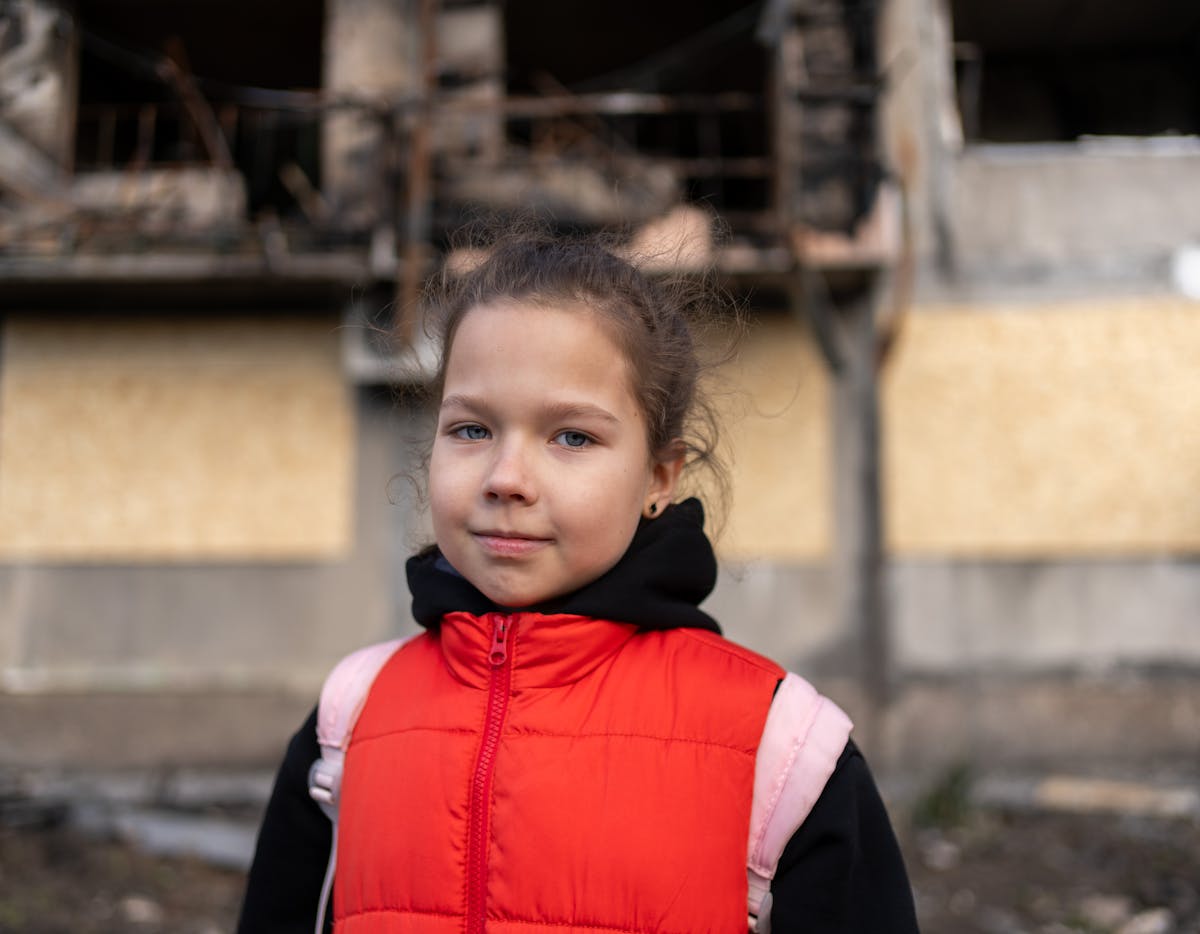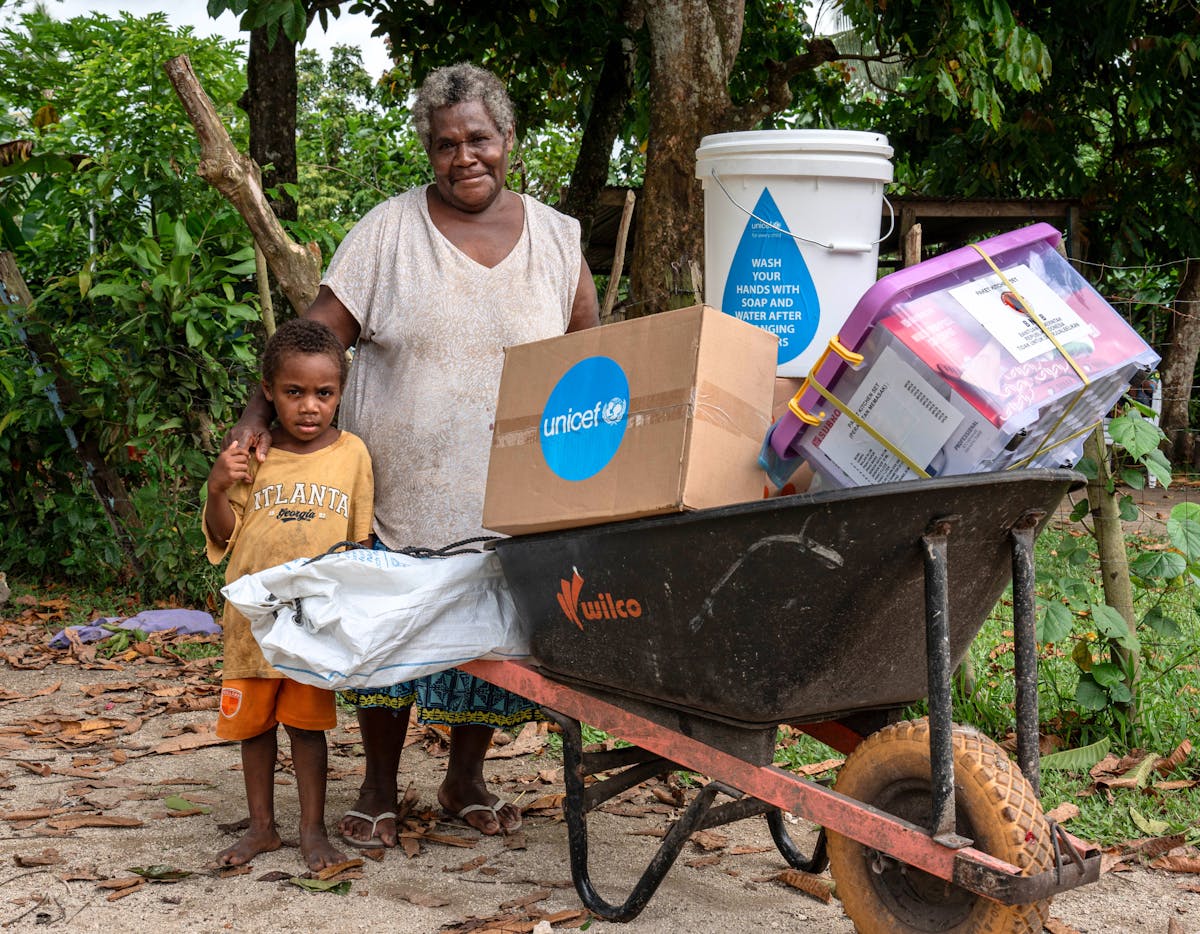
UNICEF Aotearoa
Annual Report 2024 PŪRONGO Ā-TAU 2024
Home
UNICEF Aotearoa Annual Report 2024
Jump to a section:

ABOUT UNICEF MŌ UNICEF
United Nations Children's Fund (UNICEF) is the leading voice for children, established in 1946 in the aftermath of World War II. The mandate was clear: to help children and young people whose lives and futures were at risk – no matter their country's role in the war.
For over 75 years, UNICEF has protected children's rights in more than 190 countries and territories worldwide. As a result, UNICEF has provided more children with clean water, life-saving food and vaccines, education and protection from violence than any other humanitarian organisation.
UNICEF Aotearoa is a New Zealand-registered charity and part of the global UNICEF family. We are one of UNICEF’s National Committees, meaning we work to support children here in New Zealand by advocating for their rights, and around the world by fundraising to help UNICEF globally support children and families in need.
We exist to empower and mobilise the people and the government of New Zealand to invest in the positive transformation of every child's future. Through innovation in our mahi and by inspiring generosity in our donors, we make a powerful IMPACT in creating a better world for every child.


Our vision is every child, everywhere, thriving.
He whakakitenga: Kia ora ai ia tamaiti, ahakoa kei hea.
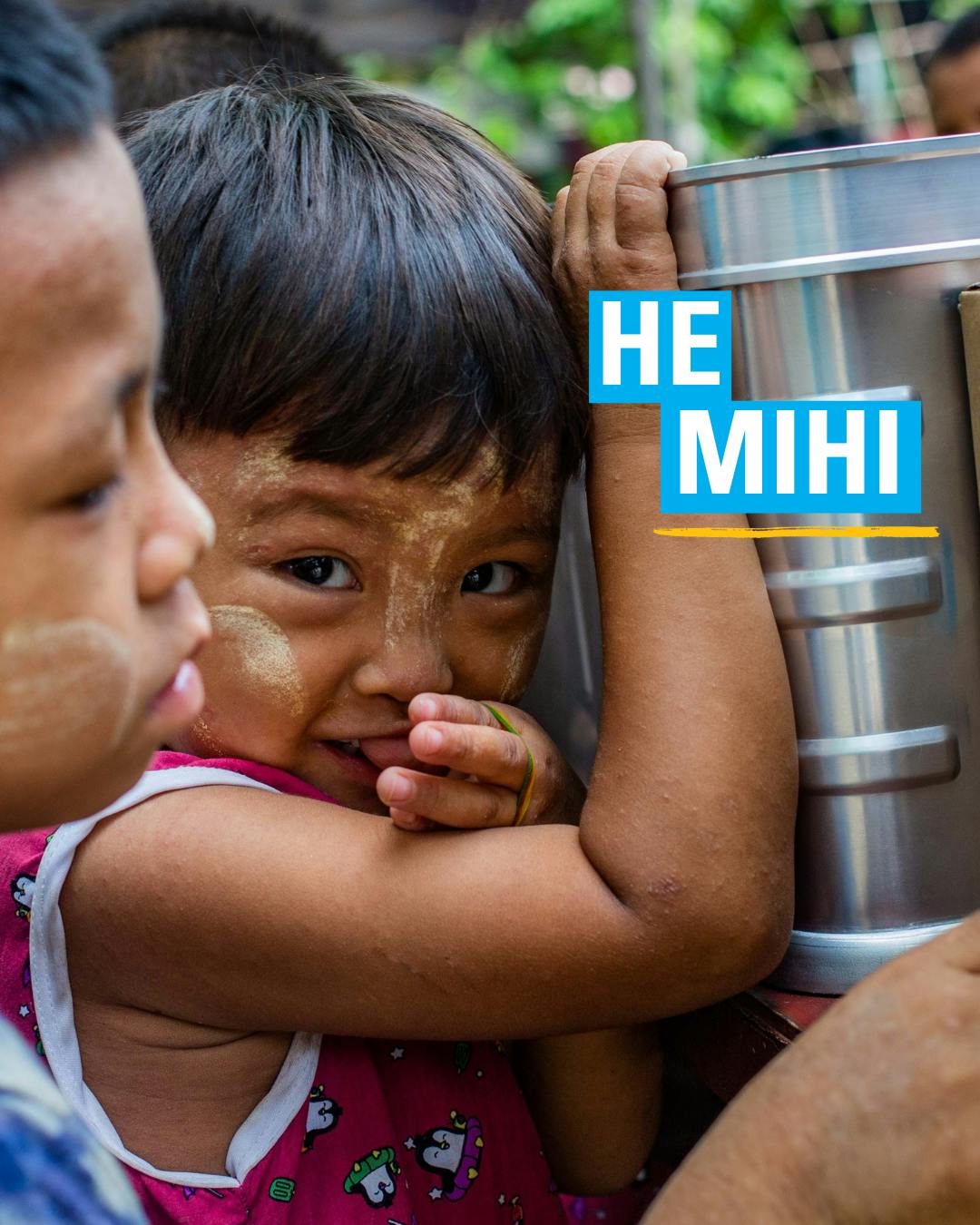
Āio ki te Aoran
Aroha ki te aorangi
Koa ki te aorangi
Pono ki te aorangi
Kia tau ko te kahukura
Te wairua kore here
te kawe i te tika
me te pono
He tohu aroha tēnei
Ki te o whānui
He maumahara ki te
whaea a Papatūānuku
- Nā Rose Turuki Pere te Kaituhi
Peace to the universe
Love to the universe
Joy to the universe
Truth to the universe
May the violet flame
the spirit of freedom
that upholds justice
and truth, prevail
This is a gift of love
to the whole world
it is a token of my regard
for Papatūānuku – earth mother
JOINT MESSAGE FROM THE CHAIR AND CHIEF EXECUTIVE OFFICER
At UNICEF Aotearoa New Zealand, we are privileged to work as part of a global team dedicated to the protection of the rights of children, everywhere. As a UNICEF National Committee, we work with the people of Aotearoa to make a difference for every child, through our fundraising, our advocacy and our partnership with the New Zealand Government.
As we reflect on 2024, it is clear that the year brought both substantial challenges and meaningful progress for our organisation. Despite a constantly shifting global and domestic environment, our commitment to tamariki and rangatahi here in Aotearoa, and to children everywhere, is unwavering.
One of the defining strengths of UNICEF is our ability to respond swiftly to emergencies. While ongoing crises demanded our attention in 2024, the year brought fewer high-profile new emergencies yet an alarming increase in global instability and a growing strain on international aid budgets. These factors contributed to a more complex and competitive fundraising environment that we are facing head-on in 2025 and beyond.
While this is a significant challenge for organisations such as ours, we can view it as an opportunity to innovate and deepen our commitment to long-term impact. We will focus on remaining agile, resilient, and ready to deliver for every child.
At the international level, geopolitical tensions and operational complexities have at times tested our ability to deliver effectively through our partners. We are proud of the progress we have made against this backdrop, thanks to the passion, dedication, and innovation of our team.
Despite some challenging headwinds, there is much to be proud of. In 2024, we built a world-class team and made important strides in diversifying and expanding our donor base. Our regular individual giving programme saw positive movement and we embedded new digital tools that will make our work more data-driven and efficient. We also developed comprehensive dashboards to provide real-time insights into our operations and improve business data insights.
In our advocacy work, we deepened our engagement across government and continued to amplify young voices through our Young Ambassadors programme. We were thrilled to host the Parliamentary Forum for Children's Rights, bringing together young people, youth advocates, MPs and ministers. Meanwhile, the UNICEF Aotearoa ambassador programme also continued to grow in reach and impact, and we welcomed broadcaster Laura McGoldrick, who joins rugby legend Dan Carter in supporting and sharing our work.
Looking ahead to 2025, we will focus on building stronger digital capabilities in donor retention and acquisition, ensuring we put donors at the centre of our strategy. Through finance and technology innovation, we aim to increase the effectiveness of our impact story, as well as our operational decisions. We will continue to streamline our systems and remain responsive so we can fulfil our mission for every child.
UNICEF Aotearoa also remains committed to our bicultural journey. While we are still at the beginning, we recognise the importance of honouring Te Tiriti o Waitangi and deepening our understanding of Te Ao Māori through genuine engagement and relationship building.
2024 was also a year of milestones for UNICEF’s leadership, locally and internationally. We were thrilled to welcome UNICEF Executive Director Catherine Russell on her first ever visit to Aotearoa, and grateful for the expertise and reflections she shared with government leaders, UNICEF staff and supporters. We also want to acknowledge and thank Amanda Ellis who stepped down from our Board in 2024 for her commitment and generosity.
Thank you for standing with us through a year of growth, learning, and impact. Together, we are building a better future for all children, here in Aotearoa and around the world.
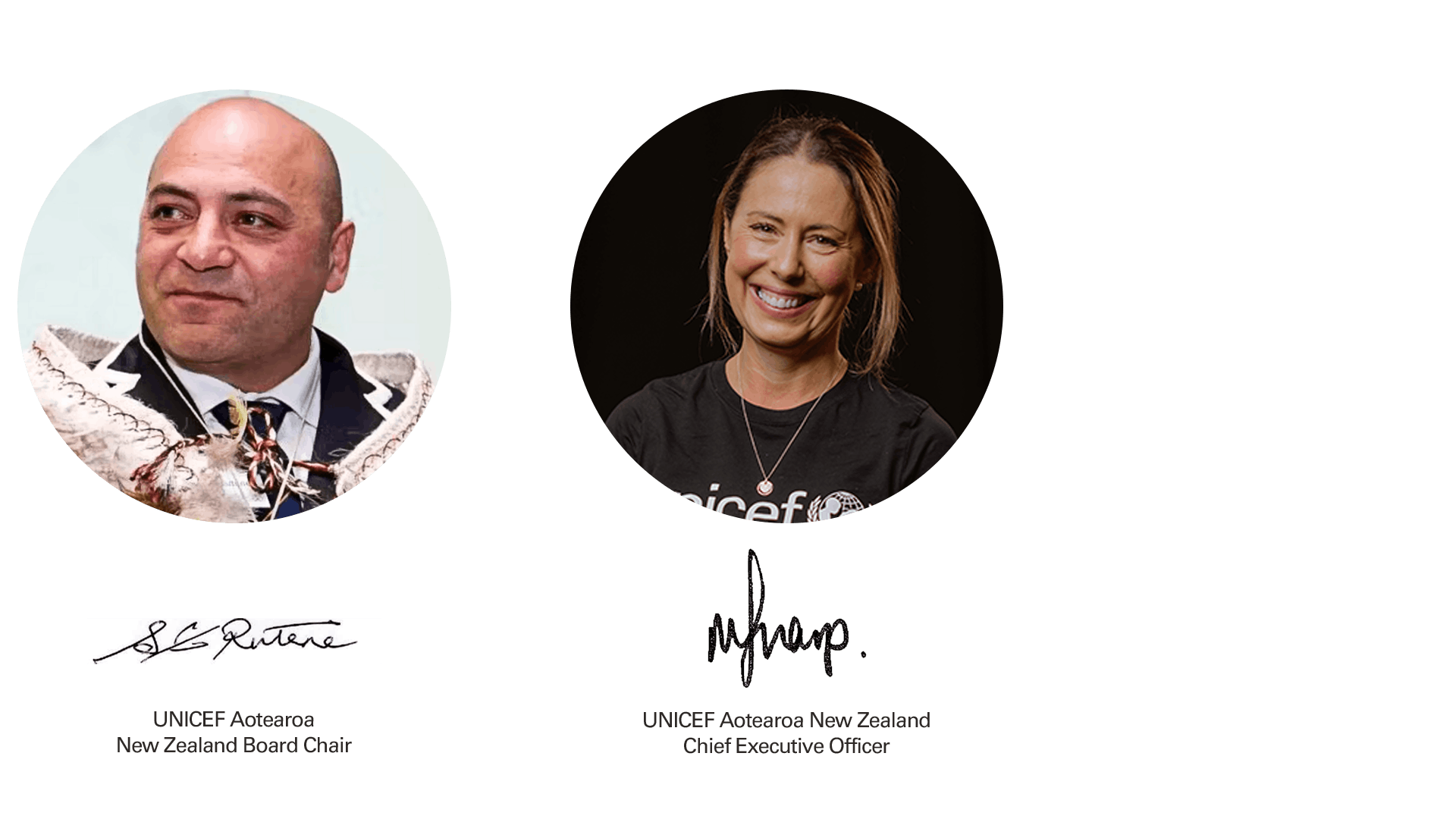
How are we doing?
Our goal for 2024 was to consolidate the transformational changes we have been making across the organisation to help us reduce costs, improve transparency and ultimately maximise our impact for every child, everywhere.
Faced with a complex external environment, including a change in government, high cost of living for donors and business uncertainty, we have continued to diversify our income sources and build a strong foundation for our advocacy here in Aotearoa.
Despite economic pressures globally, our fundraising efforts remained resilient. The cost-of-living crisis has influenced donor behaviour, with a shift towards smaller but more frequent donations. While some discretionary giving declined, our dedicated supporters continued to prioritise humanitarian aid, allowing us to maintain critical response efforts in conflict zones and disaster-affected regions.

2024 Highlights
450 million children worldwide are living in areas of extreme water vulnerability. This year we teamed up with Les Mills to launch a global ‘Workout for Water’, with nearly 1000 individual supporters from around the world taking part in a challenge to do 450 reps, every day for a week to raise awareness of the impact on children’s development, health and happiness. Through this multi-country campaign over NZ$200,000 was raised for children around the world. Jo Perkins, Innovation Manager at Les Mills, joined UNICEF on a visit to Cambodia in 2024 to see the impact on the ground of flexible funding (RR) that Workout for Water raised.
“What I saw in Cambodia was the use of RR, delivering vital care and support to people in need. My biggest takeaway was seeing the ‘ambulance at the top of the cliff’ working…the impact of being proactive is so much greater than being reactive, because getting to things before they become big issues is surely cheaper and easier than trying to resolve or fix problems. That’s the best return on investment.”
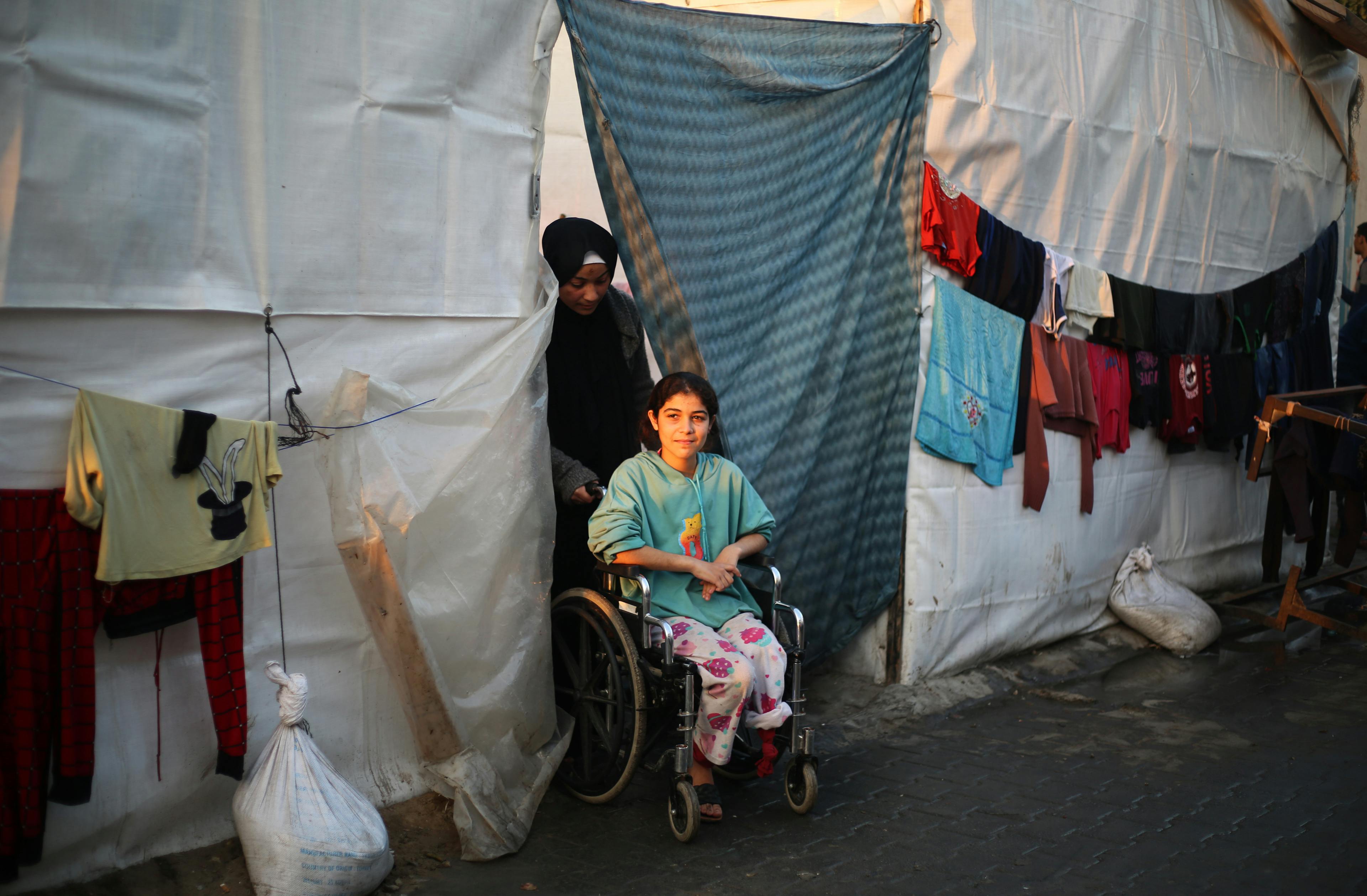
FIANZ FOR GAZA
In December 2024, UNICEF Aotearoa received its first support from the Federation of Islamic Associations of New Zealand (FIANZ). The generous gift of $274,000 will support the delivery of prosthetics to children in the State of Palestine, and the wider Middle East and North Africa region. The scale of injury and amputation among children in Gaza is significant; the region has the highest number of child amputees per capita in the world. More than 23,000 children have sustained conflict-related injuries, with many thousands now living with disabilities and in need of long-term rehabilitation.
Our collaboration with FIANZ will help improve outcomes for injured children and will be delivered in partnership with local organisations providing wraparound support services such as physiotherapy and mobility aids, all aimed at enhancing children’s independence, mobility, and quality of life.
Dan Carter’s DC10 fund helps to support clean water for kids across the Pacific. In October, Dan Carter was hosted by UNICEF International Committee member Miky Kambara in Tokyo. In collaboration with UNICEF Japan, and through partnerships and connections forged at this meeting, the DC10 fund secured a US$1 million funding commitment. All of the funds raised will go directly to supporting more children accessing clean drinking water, WASH facilities and equipping communities with knowledge to keep their children safe.
“Seeing New Zealand and Japan come together to support kids in the Pacific through the DC10 Fund means a lot to me. Clean water changes everything for a child – it keeps them healthy, helps them stay in school, and gives them the chance to just be kids. I’m particularly proud to be part of a project that’s connecting generations through a shared purpose of making a difference”. - Dan Carter
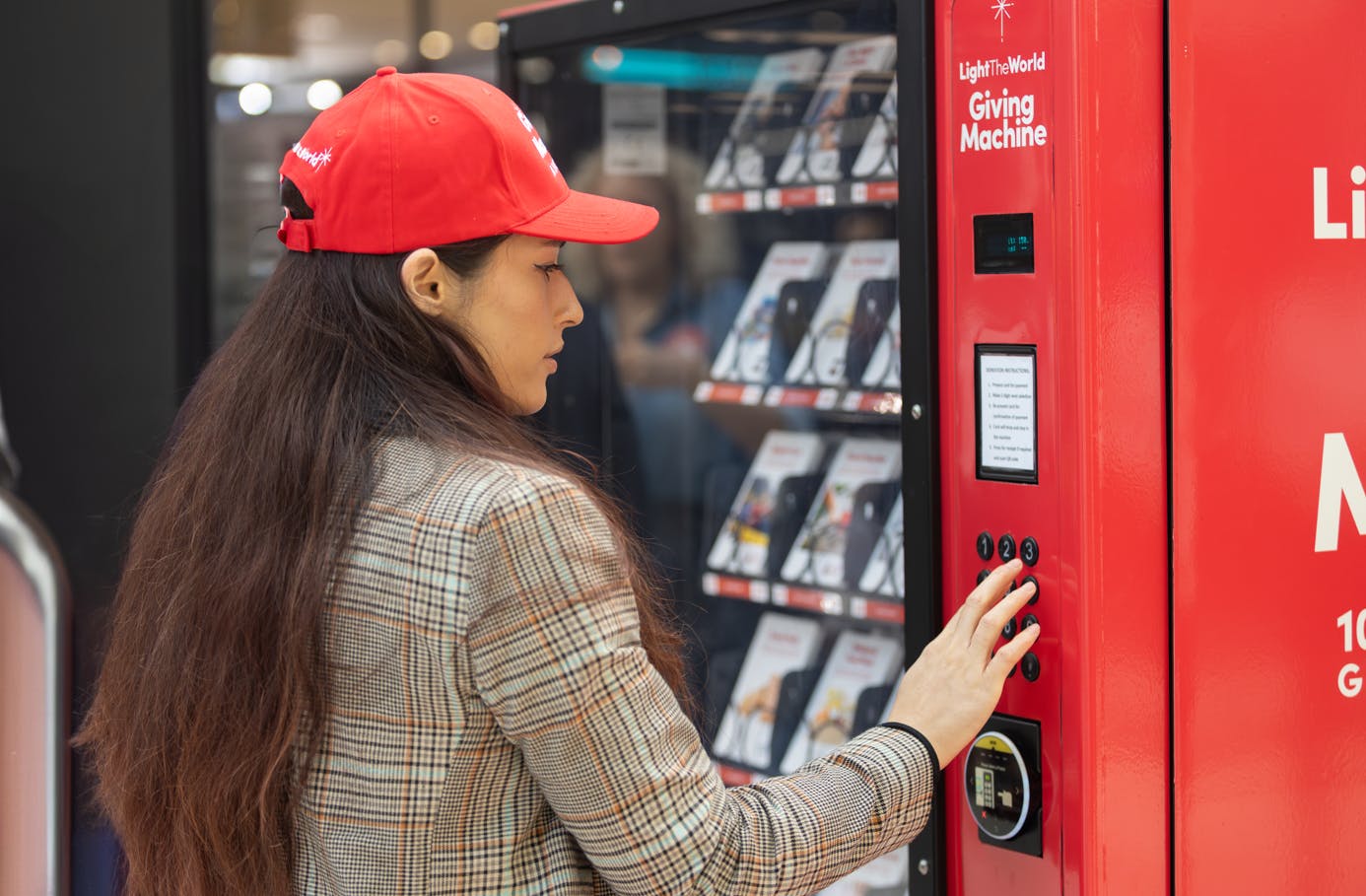
THE CHURCH OF JESUS CHRIST OF LATTER-DAY SAINTS
In 2024, we celebrated the third year of our partnership with Latter-day Saints Charities (LDSC). Through this partnership, in 2024 UNICEF was able to continue lifesaving work in Vanuatu, Solomon Islands and Papua New Guinea to secure access to WASH facilities, including handwashing stations and toilets, and delivering early childhood care and education programmes in Papua New Guinea.
We were also fortunate to participate in the LDSC ‘Light the World’ Giving Machine initiative. Giving Machines were located in cities across Aotearoa, and donors were able to select ‘gifts’ which represented goods and services that UNICEF delivers, including a school bag full of school supplies, soap for a child to wash their hands and a gift of disaster relief supplies.
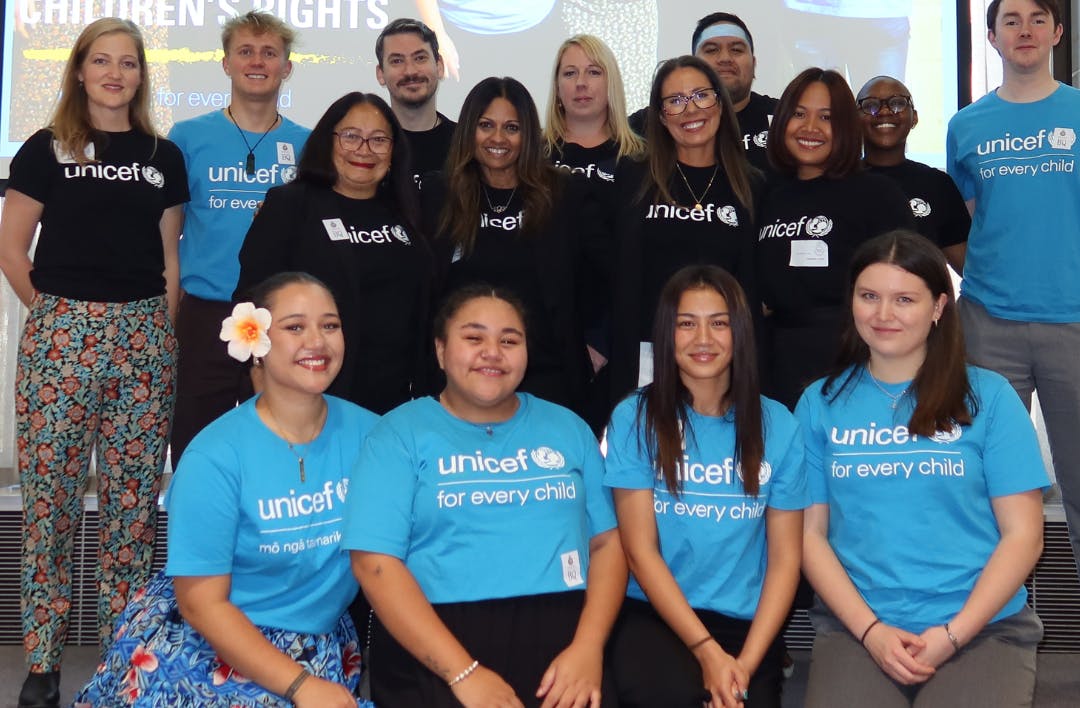
PARLIAMENTARY FORUM FOR CHILDREN'S RIGHTS
In May 2024, UNICEF Aotearoa, alongside its first cohort of Young Ambassadors, launched the Parliamentary Forum for Children's Rights, a new initiative designed to connect young people directly with Members of Parliament. The Forum connects politicians from across Parliament and youth advocates to promote children's rights and the Sustainable Development Goals (SDGs) in New Zealand. On World Children’s Day in November, we were thrilled to host our third Parliamentary Forum, which focused on the importance of reducing inequality, non-discrimination and children’s right to be heard.
Hosted by UNICEF Aotearoa Young Ambassadors, the Forum enabled children from across Aotearoa presenting their questions to a panel of MPs and the Minister for Children.
Thanks to generous donors from around the world, UNICEF was able to be there for the children of the Gaza crisis as the conflict continued into its second year. On a monthly basis, UNICEF was able to provide safe drinking water to approximately 1.8 million people and 1.5 million people with sanitation and hygiene services.
Critical nutrition products were supplied to 1.4 million people and a million individuals were reached with cash transfers. While the conflict continues to have a devastating impact on children and their families, UNICEF remains on the ground, doing everything we can to alleviate suffering and provide lifesaving care.
KEY FUNDRAISING RESULTS
In 2024 we raised $12.9 million to change the lives of thousands of children, around the world and here at home. Over the past year our donors supported fundraising campaigns to help children in countries and regions affected by natural disasters or conflicts. These donations also make possible the vital development work UNICEF does in partnership with governments and organisations to support clean drinking water, education, health services and medical supplies across the world.
As always, our Pacific neighbours were a key focus for New Zealand donors and UNICEF’s work in the region has continued to help many thousands of children and families in need. In the section of this report titled ‘Our work in the Pacific’ you can find out more about UNICEF’s work in that region including our partnership with MFAT.
THE GREATEST NEED
Our Greatest Need appeal generates critical ‘Regular Resources for Children’ (RR), which are funds given without restriction by the donor. They are essential to UNICEF’s mission, allowing UNICEF to decide when and where is best to allocate funding. This flexibility is critical during responses to sudden-onset emergencies, when children’s lives are in immediate danger, and for protracted emergencies where needs are chronic yet urgent, but when the world’s focus may be elsewhere. Flexible funding from supporters will help UNICEF continue to meet the needs of children and families all over the world, in countries whose crises remain out of the media spotlight, and advance equity in humanitarian action.
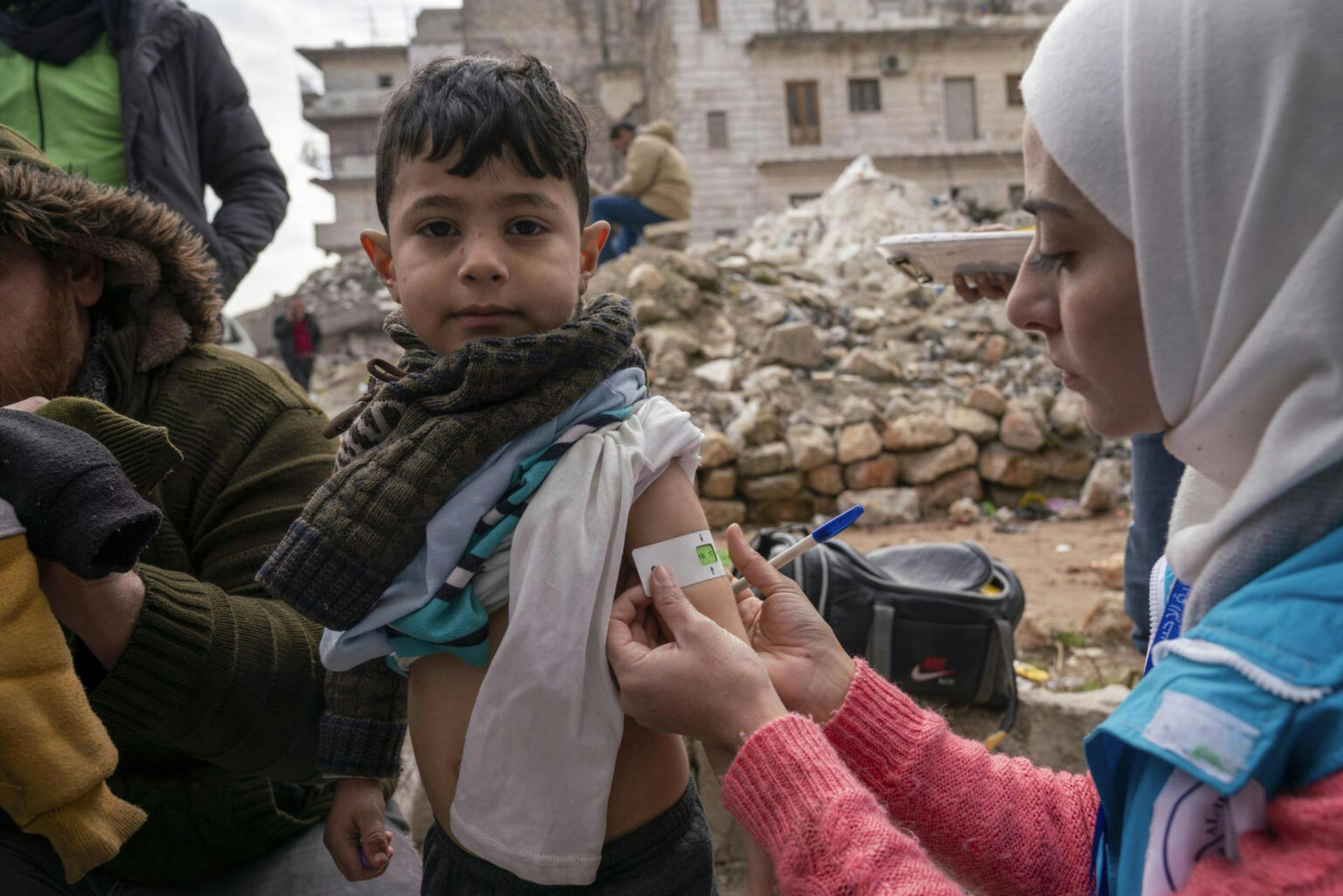
UNICEF/UN0781272/AL-ASADI

Partnering with our Pacific neighbours is one of the top priorities at UNICEF Aotearoa, and every year, Kiwis give generously to support the work we do in the region. Through these generous donations and the support of our partners, over $4,902,799 was raised for children in the Pacific in 2024.
We saw Kiwis rally to support children and their families affected by the earthquake that hit Vanuatu in December, and our UNICEF partners mobilised on the ground in response to a landslide in Papua New Guinea in June. Support continued across the Pacific through ongoing programmes to provide access to clean water and sanitation and increase access to early childhood education.
UNICEF Aotearoa runs multiple campaigns and programmes across the Pacific through our Negotiated Partnership with the Ministry of Foreign Affairs and Trade, with support from the DC10 Fund in collaboration with Dan Carter and LDSC. The negotiated partnership is a multi-year collaboration committed to investing $16 million into making a huge impact for children in five Pacific countries.
Along with our dedicated individual donors, our ambassadors, corporate and community supporters, and our partnership with the New Zealand Government, the NZ International Development Cooperation Programme played a massive part in advancing children's rights to survival, protection, development and participation.
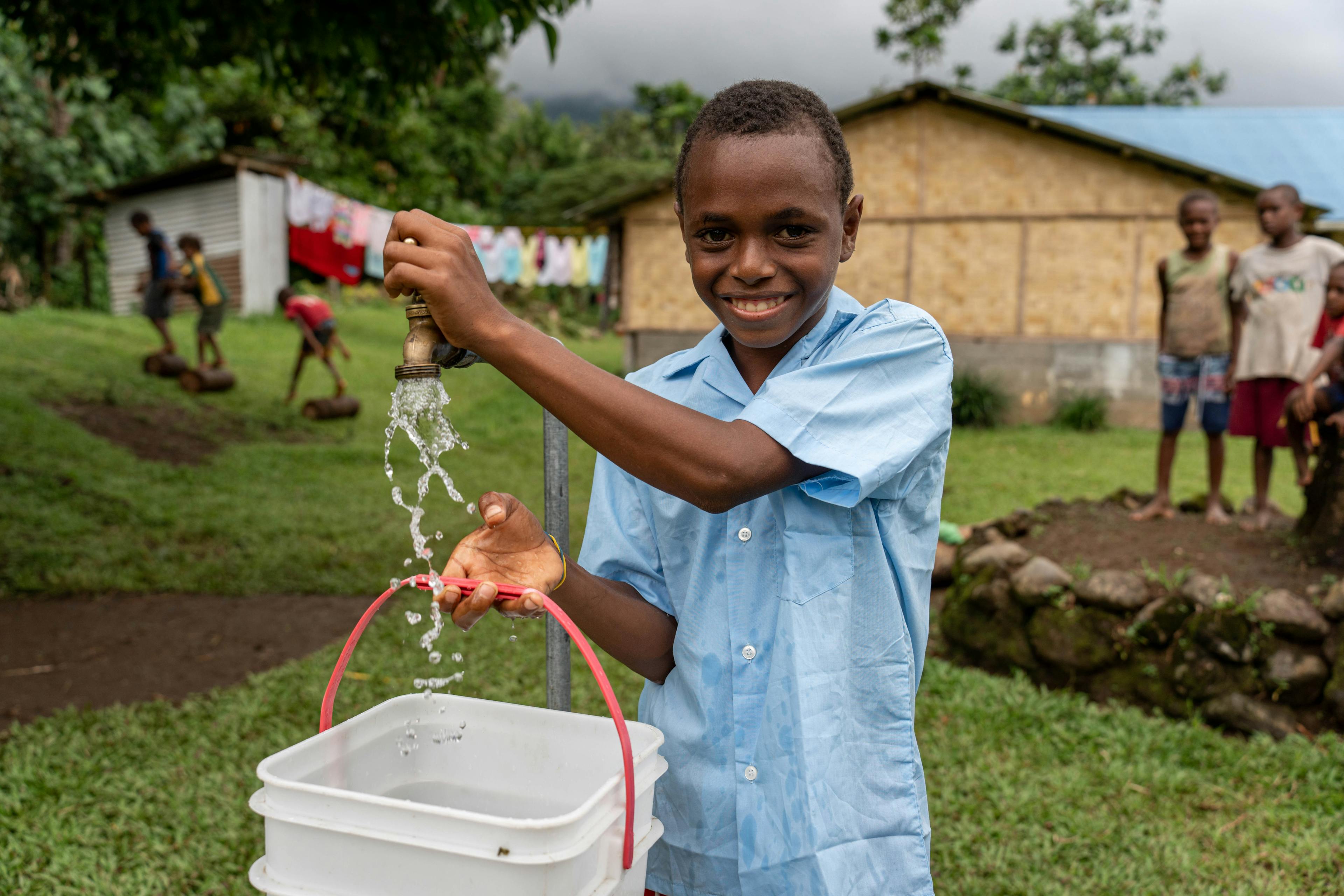
UN0822202
OUR PARTNERSHIP WITH THE NZ GOVERNMENT
Te rangapū i waenga i ā mātou ko te kāwanatanga ō Aotearoa
As a UNICEF National Committee, a key role for us is to support UNICEF’s relationship with the Government of the day in our territory. This includes facilitating and encouraging our own Government’s contributions to UNICEF.
In 2021, UNICEF Aotearoa entered into a co-investment agreement with the New Zealand Government to improve outcomes in early childhood education and access to clean water and hygiene, for children across the Pacific Region. Through this collaboration with the Ministry of Foreign Affairs and Trade (MFAT) and UNICEFs expertise in child rights and international development, we have continued to strengthen Early Childhood Care and Education (ECCE) and Water, Sanitation, and Hygiene (WASH) across Kiribati, Timor-Leste, Papua New Guinea, Solomon Islands and Vanuatu.
The Climate Finance for Community Resilience Fund was also an important factor in 2024, with Phase 1 funding of $1.1 million approved for the 2024 period. The fund is designed to support inclusive, locally led climate action in the Pacific, delivered in partnership with New Zealand NGOs including UNICEF Aotearoa, and with local Pacific and Timor-Leste civil society organisations.
THE POWER OF PLAY
This year in Kiribati, we worked on a pilot ‘Te Kaba Waa’, a guide for teachers to play-based curriculum. Infused with the richness of Kiribati culture and language, Te Kaba Waa is based on the local environment including storybooks, adorned with familiar illustrations which not only improves children’s literacy skills but provides a deeper connection to their surroundings.
We have seen enormous success and engagement from teachers, parents and most importantly children. Attendance numbers have increased greatly, and were sustained throughout the year, when previously we had seen a decline.
Rannatu, a teacher "The children’s thinking skills have improved. They ask more questions, they explore, and they understand better." The new curriculum didn’t just help teachers—it also changed how parents saw education.
"Before, he would run straight onto the road when he saw a car. Now, he stops, looks both ways, and waits. The curriculum taught him road safety, and it has changed his behaviour." For the first time, parents saw the power of early education. "I never realised how much preschool could shape my child’s future. Now, I see the difference
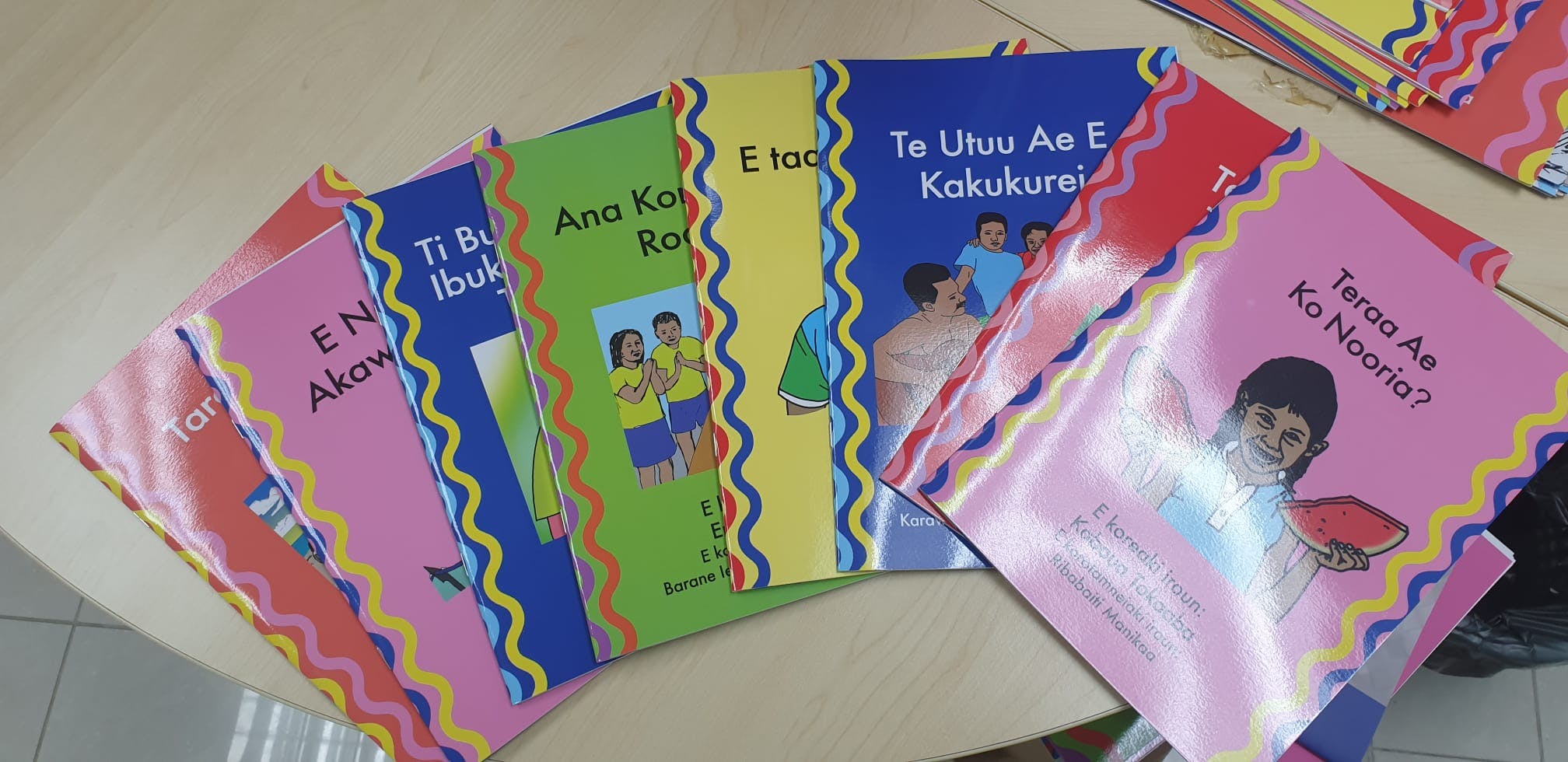
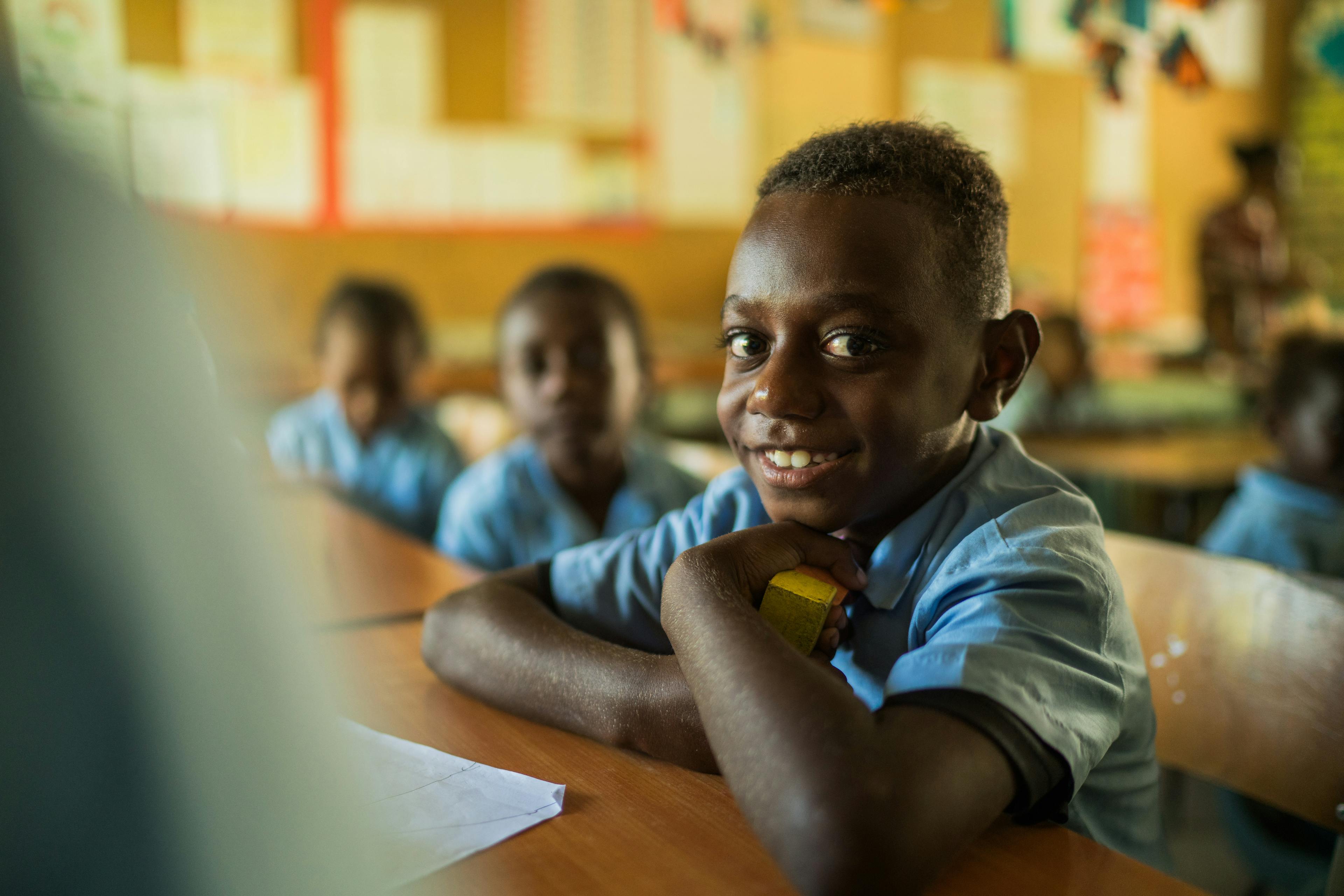
NEGOTIATED PARTNERSHIP 2024
The Negotiated Partnership entered its fourth year in 2024, continuing its initiatives with ongoing funding through the NGO window in collaboration with offices in Fiji, Papua New Guinea, and Timor-Leste. Despite challenges such as inflation, natural disasters, and logistical constraints, UNICEF has continued vital work improving the lives of thousands of children.
A highlight this year was the launch of the Early Childhood Care and Education (ECCE) Curriculum in Kiribati, positively impacting over 7,000 children across multiple regions, alongside extensive water sampling efforts in nearly 400 communities. Our engagement with MFAT remained strong, focusing on regular reporting and public diplomacy aimed at enhancing visibility and accountability.
KEY ACHIEVEMENTS & IMPACT
Strengthening Early Childhood Care and Education (ECCE)
Enhancing Child Protection & Parenting Support
Expanding WASH Access & Improving Infrastructure

TIMOR-LESTE CLIMATE FINANCING
In 2024 we launched a 2-year programme, supported by the New Zealand Government, to provide a sustainable community-level approach addressing climate-based water scarcity in Timor Leste. This programme supports nature-based solutions such as construction of earth dams, terraces, and water retention ponds, that will benefit at least 30,150 people across 16 sucos [communities].
Communities will be supported to make their own water catchments retain and conserve more water. This means the surrounding water sources provide water for longer usage, especially during the dry season. UNICEF is also working with schools to ensure that children have the necessary knowledge and skills to be resilient to water scarcity. This will lead to children, and specifically girls, spending more time getting quality education rather than gathering water.
DAN CARTER AND THE DC10 FUND
Dan Carter is a rugby legend, UNICEF Aotearoa Ambassador and champion for getting kids in the Pacific access to clean water. His DC10 fund helps direct donations from generous donors in Aotearoa and around the world to UNICEF’s water and sanitation projects across the Pacific.
2024 has brought several significant milestones for Dan and the DC10 Fund including Beat Dan Carter Campaign and DC10 Japan Dinner.
The hard mahi started in May! Across the motu in May and June this year, Kiwis signed up to try and Beat Dan Carter. DC set the challenge and asked all of Aotearoa to beat his score of 273 goals using one ball, one tee, in one hour. 472 individuals, 55 teams and over 12,000 kicks later and we raised $138,594, to help Pacific tamariki get access to clean water. We particularly want to thank Chemist Warehouse and Barfoot and Thompson’s for their generous sponsorship for this event, and Eden Park and Adidas for their support.
Together with Dan and the DC10 Fund, we've been absolutely blown away by everyone's efforts and have seen whole communities rallying together for support. Game changing stuff!
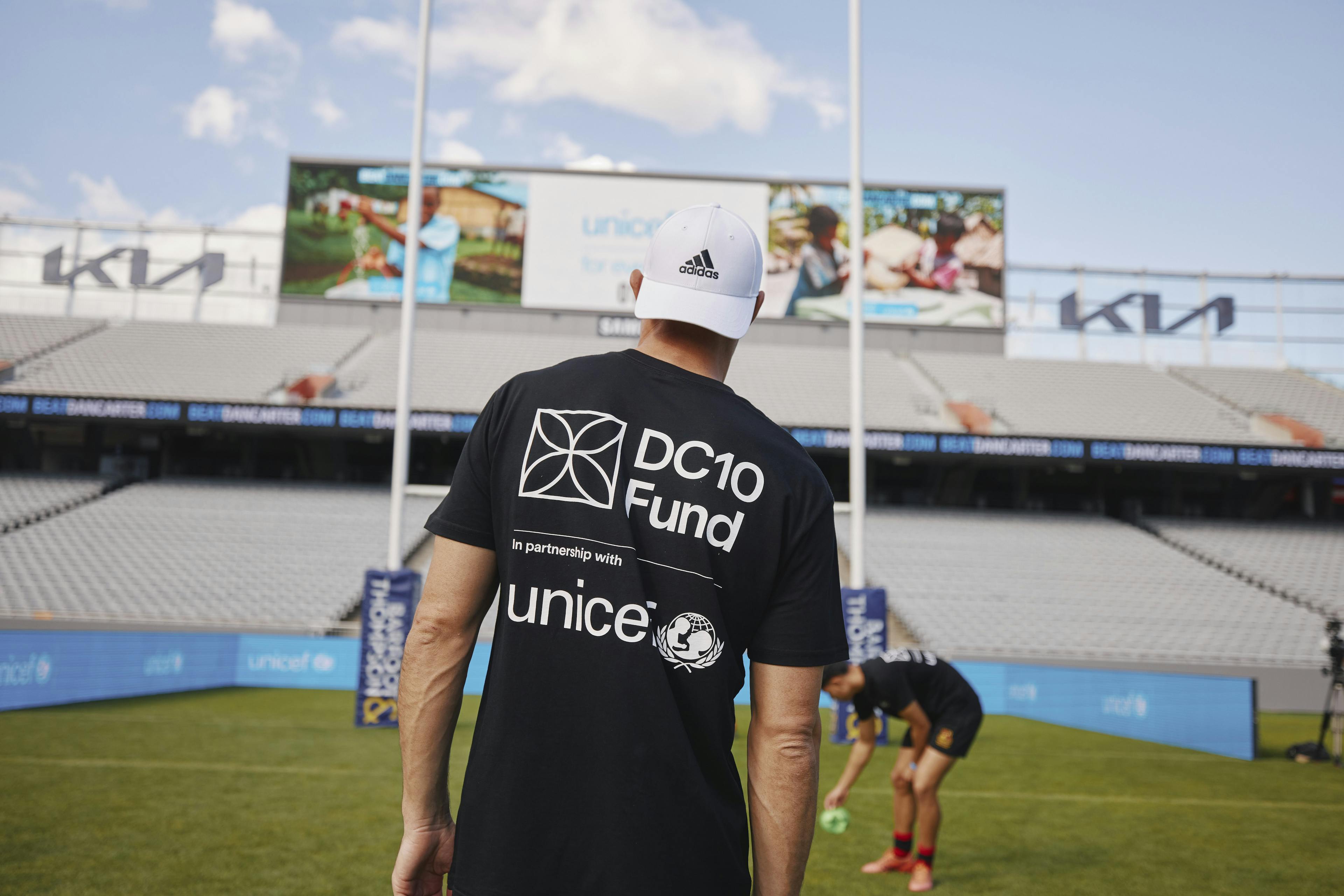
ROTARY IMMUNISATION PROGRAMME
The Rotary Give Every Child a Future project continued to roll out vaccines across nine Pacific Island countries using funds raised by Rotarians across Aotearoa and Australia. The project also reached an exciting key milestone in 2024 with vaccines for pneumococcal disease, rotavirus and HPV (human papillomavirus) being added to these countries’ national essential immunisation programs.

OUR DOMESTIC ADVOCACY PROGRAMME
In 2024, UNICEF Aotearoa reinforced its focus on protecting and promoting children's rights in Aotearoa New Zealand. Through our Changemakers platform, over 2,000 young people were able to learn about and engage with government policies affecting their lives. Our child rights education (CRE) resources were also accessed over 3,500 times helping us reach over 11,000 children with this learning in 2024.
We engaged and facilitated discussions between young people and 20 Government Ministers and MPs, as well as making 13 submissions on Bills and government policies to ensure children's interests were considered in decision-making processes.
In 2024 UNICEF Aotearoa built on our strategy to influence national climate policy and advocate for improved social protection for families. This included submissions on the Fast Track Approvals Bill, the Crown Minerals Amendment Bill and ERP2, as well opposing the removal of section 7AA of the Oranga Tamariki Act and advocating for more resources in Budget 2024 towards children and young people to ensure they thrive. We collaborated with partners to highlight the UNCRC’s observations on issues affecting tamariki in Aotearoa, as well as sharing the voices of those from vulnerable groups who experience educational inequities.
A highlight this year was establishing New Zealand's first Parliamentary Forum for Children's Rights, which provides a platform for young people to share their views directly with lawmakers on issues that matter to them. Since its inception, the Forum has held three sessions addressing critical issues: the effects of climate change on youth, strategies to combat child poverty, and measures to reduce discrimination against children. The ongoing kōrero provides a platform for young voices to influence national policy decisions.
To commemorate World Children's Day 2024, our Young Ambassadors organised the third Forum, providing an opportunity for children from across Aotearoa to present their questions to a panel of Members of Parliament, including the Minister for Children. The event was a tremendous success, attracting 95 participants, including 43 children and young people, alongside 9 MPs.
Looking ahead to 2025, UNICEF Aotearoa will continue working to make sure youth voice is heard in policymaking. As New Zealand develops new climate commitments and tackles persistent child poverty challenges, we will continue to advocate for policies that prioritise children's rights and well-being.

CHANGEMAKERS
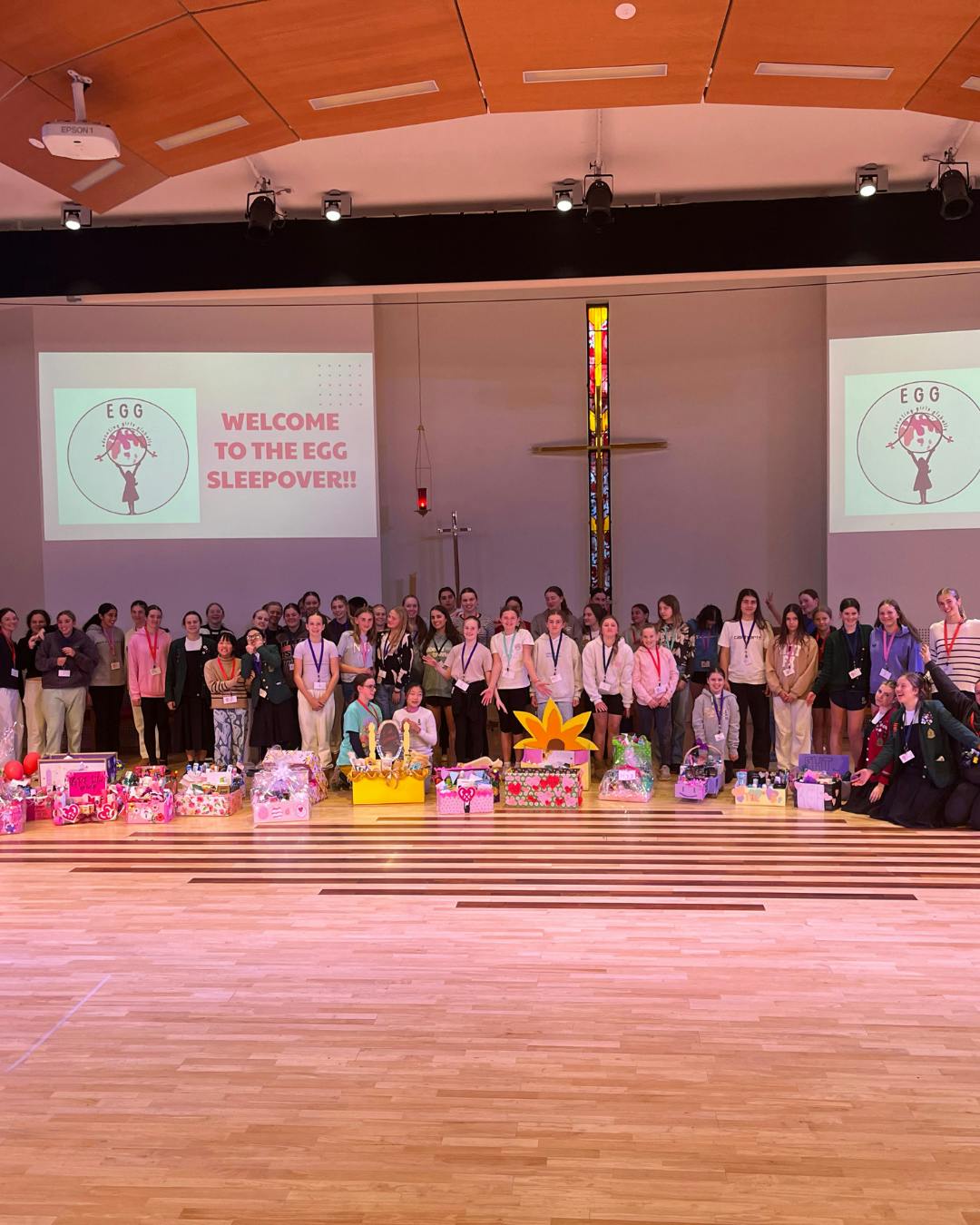
Students at St Margaret's College for their EGG fundraiser of which UNICEF is one beneficiary.
Changemakers is a collaborative platform for supporting clubs and schools across New Zealand to participate in the work of UNICEF Aotearoa. The Changemakers (Clubs and Schools programme) enables our fundraising and advocacy teams to strengthen their engagement with schools and students, while providing resources for tamariki and rangatahi in their communities to support UNICEF’s mission.
Changemakers provided children and young people with resources and tools to engage in civic matters - one example in 2024 being the Fast Track Approvals Bill. We offered educational guides to help young people understand legislative processes, templates for submitting feedback to parliamentary committees, and opportunities to present their views.
Changemakers empowers young people to voice their concerns and share their insights, ensuring that youth perspectives on crucial issues that will directly impact them are heard and considered.
INDIVIDUAL THANK YOU TO NZ SUPPORTERS
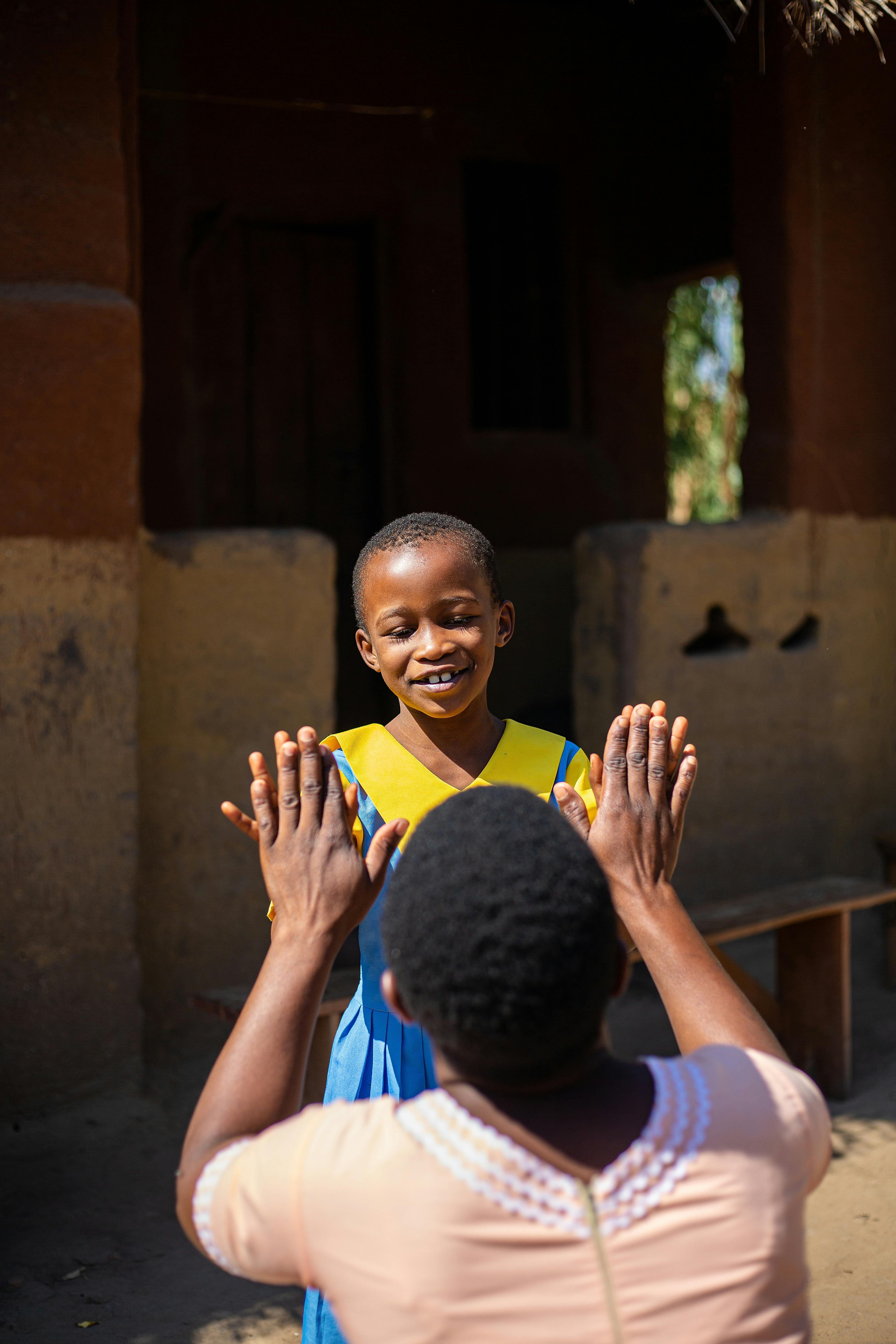
Corporate & Community sponsors
Les Mills International
Shares for Good (a pro-bono collaboration between JBWere, NZX, Computershare, Link Market Services and Phosphor).
The Church of Jesus Christ of Latter-day Saints
Rotary New Zealand
The Clare Foundation
Federation of Islamic Associations of New Zealand
Beat Dan Carter sponsors
Chemist Warehouse
Barfoot and Thompson

Pūrongo Paearu mahi
A copy of our audited 2024 consolidated accounts can be found here.
The following sections provide additional information relating to our financial performance.
NEW ZEALAND'S CONTRIBUTION TO SUPPORTING CHILDREN
In total, $28.2 million in donations from NZ were used in UNICEF’s work and programmes to improve children’s lives in 2024. This includes $6.9 million from the NZ public (individuals, corporate and community groups) and the New Zealand Government’s International Development Cooperation Programme.
The New Zealand Government also provides funding directly to UNICEF every year. In 2024, this totalled $21.3 million, comprising the Government’s regular core contribution and one-off bilateral grants to specific emergencies and programmes.
UNICEF AOTEAROA'S REVENUE 2024
In 2024, we raised $14.9 million in revenue. While we did not meet our ambitious targets for 2024, this result was a testament to the generosity of New Zealanders, who themselves were facing economic challenges in 2024.
Our donors supported UNICEF’s emergency and humanitarian work in areas such as Gaza, Ukraine and Vanuatu. Our pledge donors continued their generous regular support, contributing $5 million in 2024.
UTILISATION OF FUNDS
Donations to UNICEF Aotearoa, totalling $6.9 million, were used in programmes to improve children’s lives.
$5.5 million was used to respond to specific emergencies and development aid projects. It was also used to support children in the greatest need; in whatever fragile context they may be. $723,778 was used in our domestic advocacy programmes, and $683,402 to support the delivery of WASH and early childhood education programmes in the Pacific and Southeast Asia.
Of the $5.5 million, the top three programmes that received funding were WASH programmes at $4 million, education activities, including early childhood education and care at $700,000, with humanitarian emergency response activities at $400,000.
45.3% of total revenue was reinvested into communications and fundraising to raise more funds (2023 = 49%). 11.2% was required to support the organisation’s administrative functions (2023 = 11%).
